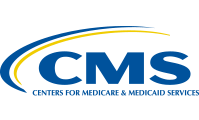On November 8, 2016, Florida residents were asked to vote in favor of, or in opposition to, legalizing medical marijuana. While some may argue that it was a controversial addition to the ballot, the results concluded that Floridians are in favor of the use of medical marijuana. The result of this vote was decisive, with 71.3 percent voting “yes,” leaving no room for questioning or demands of a recount.
In Florida, the state law requires that a minimum of 60 percent of voters must be in favor of a ballot initiative in order for it to pass. As such, when the initiative was proposed two years ago and only 57 percent of residents voted in favor of the legalization of medical marijuana, it was left just shy of becoming law.
As this election has reversed that outcome, doctors in Florida will now be able to lawfully prescribe cannabis for various debilitating medical conditions. In 2014, when the initiative failed to pass, Matt Ferner, National Reporter for The Huntington Post, stated that such conditions include “cancer, multiple sclerosis, glaucoma, hepatitis C, HIV, AIDS, ALS, Crohn’s disease, Parkinson’s disease, and ‘other conditions for which a physician believes that the medical use of marijuana would likely outweigh the potential health risks for a patient.’”
Potential Increase in Use of Medical Marijuana for Psychological Disorders
Despite the passing of this law, it is important to note that the Food and Drug Administration (FDA) has not approved the use of cannabis for treating medical conditions. Amy E. Thompson, MD, reported that there have not been enough comprehensive studies of marijuana to provide evidence that it is a safe and effective drug. That being said, studies regarding the use of cannabis for medical purposes is ongoing.
Historically, the concept of implementing the use of marijuana as a medicine has been primarily applied to treating physical concerns. However, emerging research is showing the potential that it has for treating psychiatric disorders. It has been reported that marijuana was used to treat symptoms of depression as far back as 400 years ago, yet the positives and negatives surrounding the actuality of doing so is inconclusive. While some people have stated that it alleviates symptoms of both anxiety and depression, the effects of consuming marijuana can also elicit symptoms of both, as well as initiate the onset of psychosis.
The fact of the matter is that the consumption of any type of substance will affect each person differently. So while it may be true that an individual experiences alleviation of depressive symptoms after consuming marijuana, another person may be just as likely to suffer adverse effects. For this reason, if and when it is prescribed to treat a medical condition – either physical or psychological – the individual to whom it is prescribed must be consistently monitored to ensure the safety and effectiveness of the substance.
Moving Forward
Leading up to the November 8 election, The Editorial Board for The New York Times reported that, if Florida residents vote in favor of the legalization of marijuana for medical purposes, it could open the door for other states in the south to reconsider their ban of the substance, ultimately liberalizing drug laws.
As this law goes into effect, treatment centers in Wesley Chapel, Tampa, Pasco County, and throughout the rest of the state must be aware of the possible detriments that can arise as the prescribing of medical marijuana becomes more prevalent. Unfortunately, even though the purpose behind it is for a good cause, there is always the potential for negative outcomes to occur. In addition to some individuals experiencing undesirable side effects, marijuana also has the potential to cause an individual to become addicted to it. Furthermore, those who are prescribed marijuana for medical purposes may see it as an opportunity to make money by selling it to individuals who do not have a medical need for it. By remaining one step ahead of the community at large, treatment centers can be prepared to provide care when it is needed.











